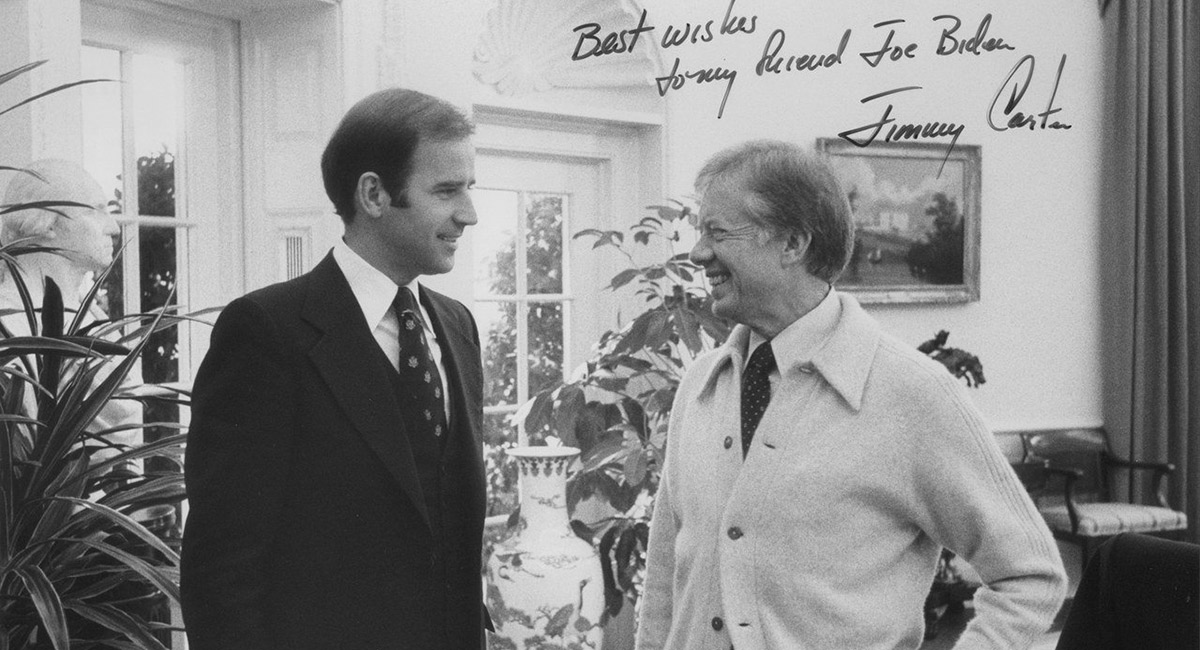In 1976, Joe Biden was the first Democratic senator to endorse Jimmy Carter for president. Now, as president himself, Mr. Biden should honor him by embracing a Carter-style deregulation agenda to reduce inflation and boost the economy.
Although Mr. Carter will be remembered for many reasons—ranging from the economic “stagflation” that riled the country during his term to the Iran hostage crisis, his efforts to rein in federal spending through “zero-based budgeting,” and his post-presidency humanitarian efforts—one of his most enduring legacies is deregulating major swaths of the economy.
Led by Cornell University economist Alfred E. Kahn, who was serving as chairman of the Civil Aeronautics Board at the time and as the president’s “inflation czar,” Mr. Carter’s assault on stifling overregulation included both executive action and regulation.
In 1978, for example, President Carter issued an executive order that, as described by Susan Dudley, head of the George Washington University Regulatory Studies Center, “established procedures for analyzing and minimizing” the burden of regulations. Also that year, he signed into law the Natural Gas Policy Act and the Airline Deregulation Act, and two years later, the Paperwork Reduction Act and the Motor Carrier Reform Act of 1980. Other significant regulatory actions during the Carter administration reduced the government’s regulatory burdens on the railroad, telecommunications and banking industries.
One of the reasons air travel has become so common and affordable for most Americans is because of the airline deregulation Mr. Carter supported. Before deregulation, commercial airline routes and fares were established by the CAB, limiting competition. As a result, business travelers and the wealthy accounted for most of the people who could afford to travel by air. Deregulation led to an approximately 33% decline in fares and, over time, to the introduction of low-cost carriers that made air travel affordable to just about everyone.
Similarly, increased competition led to lower prices in other industries that Mr. Carter pushed to deregulate. Natural gas prices fell about 30% for consumers; trucking costs decreased 35% to 75%; long-distance phone rates fell by half; and rail transport rates dropped more than 50%.
Mr. Carter’s deregulation spurred the economy to become more competitive and productive, helping to lower inflation.
Ultimately, inflation is caused by too much money chasing too few goods. Inflation is brought down both by constraining the money supply and increasing the supply of goods and services. The high inflation from the Carter years didn’t come down until after the Federal Reserve under Paul Volcker—whom Mr. Carter had appointed central bank chairman in 1979—tightened monetary policy during the Reagan administration.
But the increased economic productivity triggered by the deregulation Mr. Carter started also played a significant role in bringing inflation under control.
Unfortunately, President Biden’s agenda has involved major increases in government meddling in the economy, from the allocation of capital to favored industries (such as green energy and computer-chip manufacturing) to the attempted imposition of ESG metrics on investment firms. None of this, in the long run, will serve the economic interests of U.S. consumers or complement the Federal Reserve’s efforts to tame inflation.
In fact, upon taking office, Mr. Biden immediately reversed course from the lighter regulatory policies of the Trump administration.
The regulatory “tone” of the Biden and Trump administrations can be seen in the executive orders they signed during their first month in office. An important Trump executive order required government agencies to identify two regulations to eliminate for each new regulation proposed. Mr. Biden, to make sure the point wasn’t lost on business or the bureaucracy, almost immediately issued his own executive order rescinding the Trump requirement. Since then, Mr. Biden’s regulatory minions have proposed 200 “economically significant” regulations—those affecting the economy by more than $100 million—far more than either President Donald Trump (70) or President Barack Obama (118) at the same point in their administrations.
Nobody should expect Mr. Biden to emulate his immediate predecessor. But he claims to admire Jimmy Carter. Perhaps he could learn something from Mr. Carter as well: Heavy-handed government regulation serves the interests of no one but the bureaucrats, lawyers and lobbyists who wrestle over the details.












